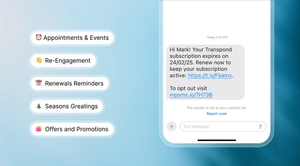Marketing events can be a game changer for your business and marketing efforts. Whether you’re launching a new product, celebrating a milestone, or trying to boost your brand awareness, a successful event marketing strategy can help you get there.
A well-defined event marketing plan is crucial for promoting events effectively, reaching attendance goals, and engaging your target audience.
But before you get started you need to understand the essential steps and strategic planning needed to run a successful event. Whether you’re hosting a virtual, in-person, or hybrid event, we’ll explore the steps you need to take, from the planning stage to promoting your event and making sure everything runs smoothly.
What is event marketing?
“Event marketing” is a broad term but mostly refers to two primary concepts.
- Using marketing tactics to promote events.
- Using events as a marketing strategy to promote an organization or mission.
Whether you are promoting events or incorporating them into your marketing plan, events are a powerful tool. Virtual and in-person events can help businesses connect with their audience and meet event goals making them an effective part of any marketing plan.
Understanding the event marketing process is crucial in planning and promoting them to achieve organizational goals. Aligning event strategies with specific goals and being mindful of external factors such as timing and industry environment can significantly enhance the effectiveness of your events.
Marketers consider events to be a very effective channel in their marketing efforts. Some organizations spend as much as 20-50% of their budget on brand experiences with a large portion of this dedicated to event marketing success.
What are the different types of event marketing?
There are various types of marketing events that you can consider. So before you get started with events marketing you need to consider the kind of marketing event that best supports your business goals.
Conferences
Conferences are large-scale events typically organized by one large company and sponsored by several smaller brands. They're valuable for both B2B and B2C brands and typically have schedules packed with speakers, workshops, and networking opportunities.
They're perfect for building professional relationships and improving customer engagement while driving brand visibility and lead generation.
Trade shows
Trade shows or expositions target specific industries or product types like sales technology or medical equipment. These events let companies showcase their products and services, helping them to attract a high number of qualified leads.
Unlike conferences, trade show event attendees are pre-qualified buyers, company representatives, and salespeople.
Seminars
Seminars, often referred to as webinars when held as virtual events, are educational events where professionals share their expertise. They often involve discussions, lectures, and intimate networking opportunities.
They typically only last a couple of hours or a full day and can involve singular or multiple speakers.
Pop-up shops
Pop-up shops are temporary retail spaces that allow companies, like ecommerce brands without permanent stores, to sell their products in a physical space. These shops offer digital brands a chance to create a more typical brick-and-mortar shopping experience for their customers.
Launch parties and celebrations
Launch parties are personal events held to mark the launch of a new business, a milestone, or a significant announcement. Some companies host annual parties to entertain clients and help improve customer engagement and brand loyalty.
While these events shouldn’t focus solely on a product or brand, a brief speech or presentation can help align the event with the company and remind attendees of the purpose of the celebration.
Workshops
Workshops, unlike seminars and roundtables, are typically open to the public and focus on sharing knowledge and educating attendees. These events can be held both virtually and in person and typically center around topics relevant to the business. By sharing their expertise companies can boost their credibility making them appear as an industry thought leader in their field.
Benefits of event marketing
Before planning your next event you need to consider what you want to achieve. Different events come with different benefits so let’s explore these in more detail.
Increased brand awareness
Successful events can improve brand and product visibility to new prospective customers. It's an opportunity for your marketing team to promote new products and build better relationships with current customers.
An upcoming event can help you engage with a wider audience and ensure a strong brand presence. This can help you stand out and be memorable leading to better sales and engagement.
Reach the right audience
It doesn't matter how well-thought-out your marketing strategies are, if you're not targeting the right audience you won't get the results you want. Research potential attendees before committing to an event and tailor your approach accordingly.
When hosting your own event, you need to consider things like email marketing strategies to curate your invite list. That way you can focus on your target audience and ensure the event's success.
Develop relationships with new and existing customers
Events are a great opportunity for face-to-face interactions. They help businesses establish new relationships and strengthen existing ones by engaging with senior professionals for other organizations.
Networking can build rapport, open opportunities for up-selling, and deepen customer partnerships. This can widen your potential market and improve your event's performance.
Build your pipeline
Events are an ideal place to generate new leads and feed your sales funnel. Set clear goals about what you want to achieve at the event and look at ways to qualify these leads via personal interactions.
In-person events allow you to engage with attendees directly to understand their needs and assess their potential as customers. Use these interactions to identify whether they are marketing qualified leads (MQLs) who are interested in learning more or sales qualified leads (SQLs) who are ready to make a purchase.
Collecting contact information is essential for post-event follow-up. You can do this by accessing data from the registration process or conducting post-event surveys.
Incorporate an effective sales strategy
One of the main goals of event marketing is to turn leads into customers. Nurture leads by providing them with relevant information and answering common questions. Tailor your communication to address their specific needs and pain points. This personalized approach builds trust and demonstrates your commitment to solving their problems.
Following up after the event is critical. Send personalized emails, arrange follow-up calls, and provide additional resources to keep the conversation going, or invite them to your next event. Offering incentives like free audits or consultations is a great way to improve your response rates. These offers provide value to potential customers and allow you to gather more information about their needs.
Establish credibility
Hosting events is a great way to demonstrate expertise and authority in your field. Presenting new ideas and valuable insights with keynote speakers positions your company as a thought leader. Share case studies, research findings, and success stories that highlight your industry knowledge and explain how your product can work as a solution. This not only builds credibility but also attracts more relevant event attendees.
Record key sessions, panel discussions, and Q&A segments to create valuable content for your audience. Posting these recordings on your website, social media channels, and other platforms is key to reaching a broader audience and increasing attendance at future events. Additionally, create a reflection blog post or social media posts to summarize key takeaways. This approach helps create continuous engagement and keeps your audience informed and connected.
Customer research and feedback
Events are an ideal opportunity to gather insights from potential customers. Engaging with attendees face-to-face can teach you a lot about their needs and preferences. Surveys and polls can also help you make positive changes when planning your next event.
After the event encourage attendees to share their thoughts on your presentations, products, and overall event experience. Implementing changes based on customer insights demonstrates your commitment to customer satisfaction and helps build stronger relationships.
Competitor research
Events let you interact with similar brands to understand their strategies and offerings. Tradeshows and larger conferences allow you to visit competitor booths, attend their sessions, and gather information. This firsthand insight helps you identify new ideas on how you can differentiate your brand.
Understanding your competitors is crucial for staying ahead. Analyze competitor strengths and weaknesses to identify gaps in your products or services. Use this information to innovate and enhance your current products and services helping you remain competitive. Networking with competitors can lead to mutually beneficial relationships and partnerships that can further your business objectives.

How to build your own event marketing strategy
Define your goals and objectives
Clarifying your goals is crucial for the success of any marketing event. You need to determine what you want to achieve. Your goals could range from increasing brand awareness and generating leads to launching a product, retaining customers, networking, or driving sales.
Additionally, it is essential to set SMART objectives, for example, generating 100 qualified leads during an event.
Understand your audience
The next step is to identify your target audience. You need to define who you want to attract to your event based on demographics, industry, job roles, or specific interests. Creating detailed buyer personas will help you tailor your marketing efforts effectively.
These personas should include information such as age, job title, goals, challenges, and preferred communication channels, allowing you to craft messages that resonate with your ideal attendees.
Develop your event idea
Selecting a theme that resonates with your audience is a key part of an event's success. Decide on the event format, whether it's a conference, workshop, webinar, or trade show, and then consider your event's unique value proposition (UVP).
To increase sign-ups you need to promote what makes your event unique and why people should attend. This could be an exclusive speaker lineup, unique networking opportunities, or promotional benefits.
Set a promotional budget
All marketing strategies need a budget. But before you promise the moon you need to consider the cost of different marketing activities like advertising, promotions, and on-ground activities is essential.
Identify the most effective channels to reach your audience. This could be email marketing, social media, content marketing, SEO, PPC, or influencer partnerships. Ensure that your marketing plan is comprehensive and covers all aspects of promotion, including both online and offline methods.
You can also create a branded event hashtag to go alongside your marketing efforts that is easy, short, and memorable. Use it consistently across all social media platforms to keep users engaged and up to date.
Prepare your content strategy
Engaging content is key to attracting and retaining your audience's interest. Develop a mix of content such as blog posts, videos, infographics, and social media updates to promote the event. Plan exactly when you'll release content leading up to the event to ensure a steady flow of information that keeps users interested. A well-thought-out content calendar can help keep your team on track and ensure timely dissemination of promotional material.
Leverage technology and your own event website
Creating a dedicated event website or landing page is a great way to host all important information in one easy-to-access spot including event details, a registration form, and FAQs. Event management tools, like Eventbrite or Cvent, make it easy to manage registration, ticketing, and attendee management.
Using event websites can also increase organic traffic by helping you appear in search results. This can increase conversions through paid advertising and creating relevant content that relates to your event.
Engage attendees
Engaging potential attendees before the event can build anticipation. Send surveys, polls, and interactive content via social media and email to get guests involved early on.
During the event, you can incorporate live polls, Q&A sessions, and social media interactions to maintain these high engagement levels. After the event, send thank you emails, share event highlights, and solicit feedback to keep the connection strong and gain valuable insights for future events.
Measure and analyze results
Defining key performance indicators (KPIs) and metrics is crucial when assessing your event's success. Metrics such as registration numbers, attendance rates, engagement levels, and return on investment (ROI) should be tracked. Conducting a post-event analysis helps evaluate the overall performance and identify areas for improvement, providing a clear picture of what worked and what didn’t.

Continuously improve
Feedback from attendees provides insights into what they appreciated and what could be enhanced. Using this feedback you can refine your strategy for future events. Continuous improvement ensures that each event is better than the last, meeting your audience’s evolving needs and expectations.
Measuring event success through various key performance indicators metrics such as attendance numbers, social media engagement, and feedback is crucial to understanding the impact and effectiveness of your event. Learning from past events is crucial for improving future marketing strategies and making informed budgetary decisions.
Example timeline
We've covered a lot, but don't be phased - to make things simple we've broken down the event management process into some simple steps.
- 6 months before event:
- Define objectives and target audience
- Develop event concept and UVP
- Start building partnerships and securing sponsors
- 3-4 months before event:
- Launch event website or landing page
- Begin content creation and promotion
- Initiate email marketing campaigns
- 1-2 months before event:
- Intensify social media promotion
- Start paid advertising campaigns
- Engage with potential attendees through webinars or Q&A sessions
- 1-2 weeks before event:
- Send reminder emails
- Increase social media activity with countdowns and last-minute offers
- Day of event:
- Engage attendees with live content and social media interactions
- Monitor real-time feedback and engagement
- Post-event:
- Send thank you emails and surveys
- Share event highlights and content
- Analyze data and gather feedback for future events
By following these steps, you can build a comprehensive business event marketing strategy that maximizes your event's success and achieves your desired objectives.
Wrapping up
To run a successful event, you need to understand the essential steps that are required. This includes defining clear objectives, understanding your audience, developing a compelling event concept, setting a promotional budget, and creating an engaging content strategy.
Leveraging technology, engaging attendees, measuring and analyzing results, and continuously improving your strategy are also vital. Successful events can help you achieve your business goals and drive growth - but you need to stay organized. Capsule CRM can help you keep track of all the important parts of your event planning so nothing slips through the cracks.




